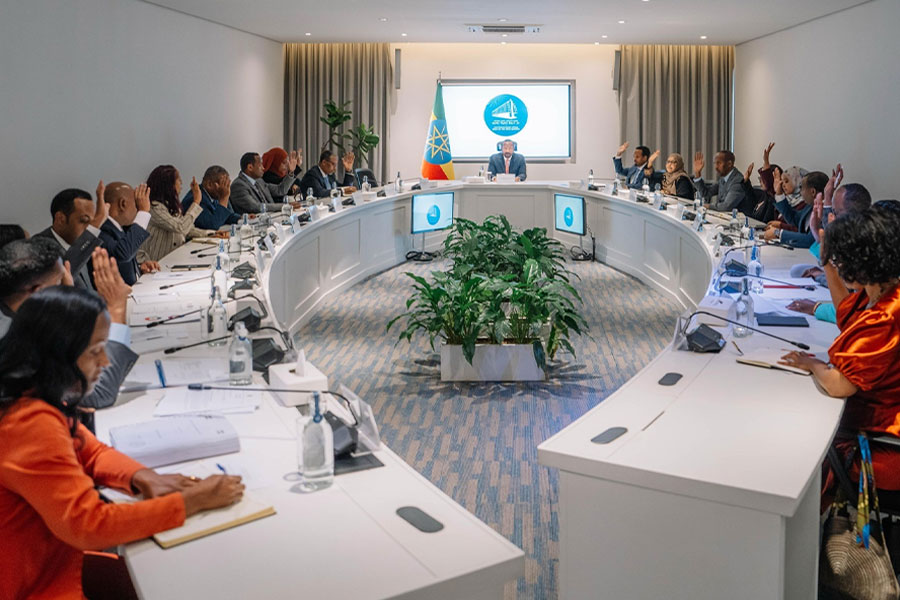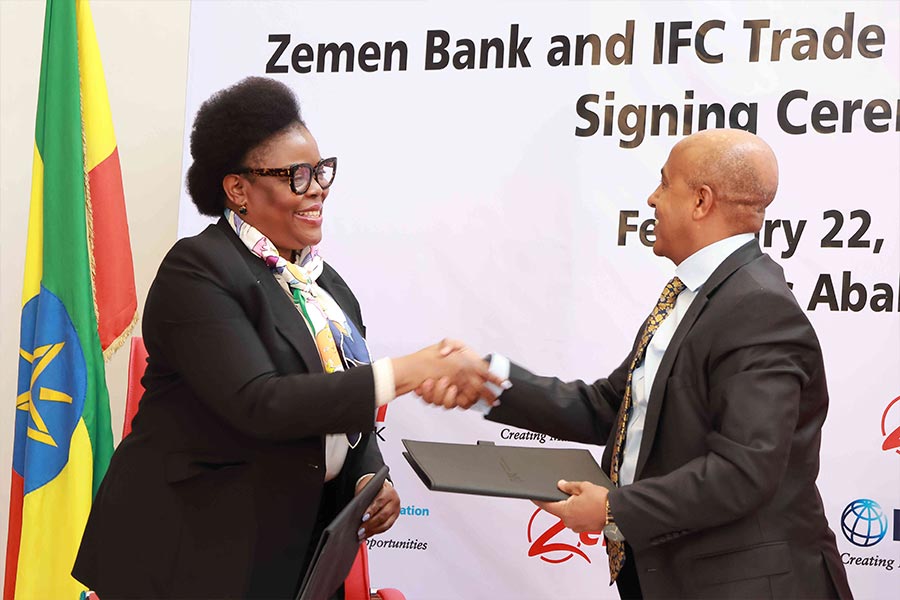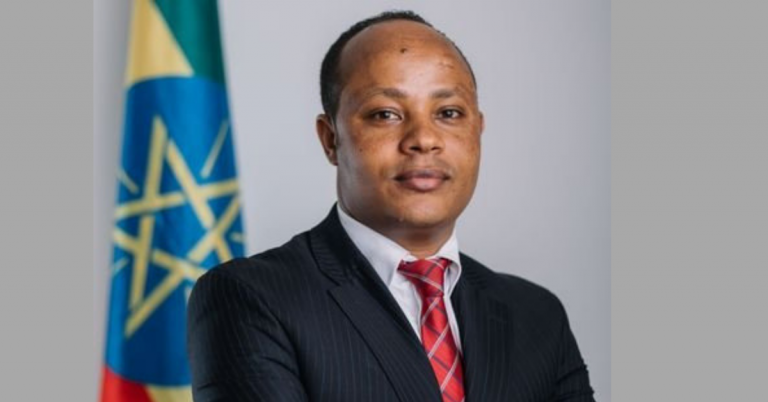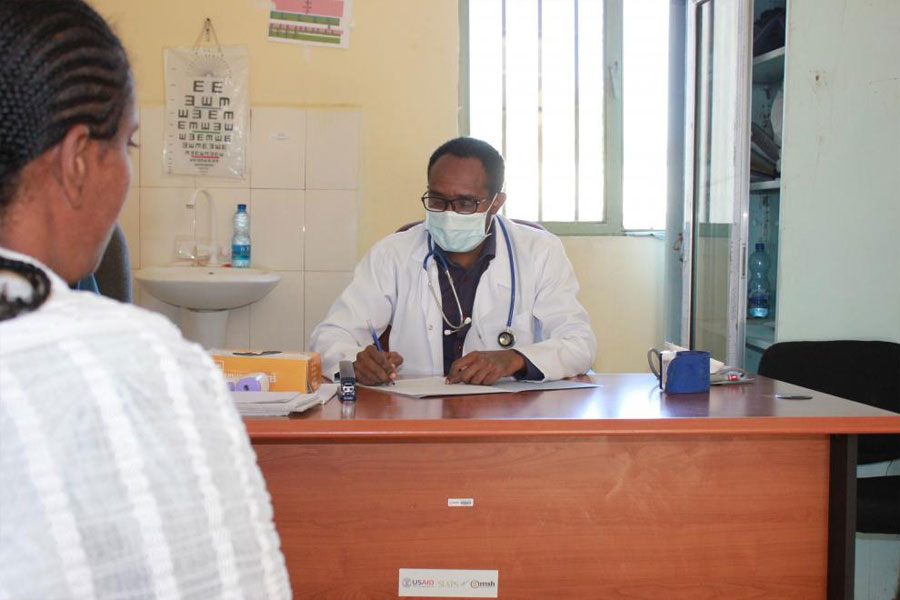
Radar | Jun 01,2019
Apr 3 , 2023
By MUNIR SHEMSU ( FORTUNE STAFF WRITER )
Private sector investment in electricity infrastructure development despite the 80pc failing history of Public Private Partnership infrastructure projects in Africa was discussed last week as Energy Ministers from Ghana, Zambia, Kenya and Ethiopia gathered at ECA headquarters.
Nearly half of the continent's 1.25 billion population cannot access electricity.
"Governments are working hard," said the moderator Joseph Atta Mensa, who is also the economic advisor at ECA.
Salvatore Bernabei is CEO of Enel Energy & Power, one of the largest renewable energy companies in the world. He is also the president of Renewable Energy Solutions for Africa (RES4Africa), an initiative launched in 2012 to electrify the continent.
He indicated that even though the continent has vast potential, the regulatory framework is the biggest obstacle preventing multinational companies from high investment. His insights were partly fed by the 16 country-wide studies, including Ethiopia, conducted by RES4Africa.
"We're looking for clear, transparent and stable regulatory frameworks," emphasized the CEO.
According to Salvatore, the long-term life cycle of large energy projects and their prolonged payback period for investments require a stable regulatory environment.
The RWG is an association of the railway industry representing it while prioritizing the implementation of the Luxembourg Rail Protocol.
Amel Chadi, vice president of Strategy & Digital Energy for Africa at Schneider Electric, indicated that issues related to the withdrawal of dividends from African countries weigh highly in the mind of prospective investors.
She further reflected on how disputes that may arise within the life span of projects need to be guaranteed by independent judicial systems in arbitration.
Roberto Virgortti, secretary general of RES4Africa, expressed his desire to see chocolate made in Cote' De Voire, a euphemism to indicate that African politicians should demand some elements within value addition to be contained in host countries.
"The cocoa goes to Europe and is imported back as chocolate," he said.
According to Howard Rosen, chairman of the Rail Working Group (RWG), Public Private Partnership success depends on combining the interests of both sectors. He also heads the Howard Rosen Solicitors, a boutique law firm specializing in international commercial law out of Switzerland.
For him, it is unfortunate that a country with large population size and land mass is confined to the Ethio-Djibouti railway.
"There is a strong desire to invest in Ethiopia's railways," Howard told Fortune.
Changes in political priorities, poor execution and black swan occurrences like the pandemic are cited as the reasons to call projects quits.
The high failure rate of intended PPP projects in Africa partly arises due to renegotiation of terms invoked usually by governments within two years, according to Jean Coullare, executive director of the World Association of PPP Units & Professionals.
"Transparency and good governance are essential for the successful delivery of PPP," Jean told Fortune.
He suggests regular meetings, deal mediation and clear communication as tools to increase resilience.
While expressing his confidence that a sufficient pool of competent PPP professionals exists in the continent, he underscored the importance of lifelong learning to meet constantly changing demands.
According to Jean, there are no short-term solutions for political reasons, rather envisaging creating an enabling environment that fosters proper stakeholder management.
State-owned Ethiopian Electric Power currently manages 22 power generating stations with hydropower accounting for 90pc along 17,000Kms of transmission lines and 163 substations.
State Minister of Water & Energy, Sultan Woli (PhD), preferred to highlight increasing electricity exports to neighbouring Kenya along with a prioritization of SDG7 goals, Agenda 2063 and the soon-to-be operational Home Grown Economic Reform 2.0 and decreasing carbon footprints.
His counterpart from Ghana, Herbert Norkplim Krapa, suggested politicians take notes of inputs given from the private sector.
African governments should initiate the development of comprehensive energy strategies that incorporate the latest technologies and solutions, said Mikael Alemu, General Manager and Co-founder of 10 Green Gigawatt for Ethiopia.
The role of 'non-economic' elements in influencing the outcomes of PPPS is inevitable as governments play a crucial role in these engagements, according to Mikael.
He believes Ethiopia should implement a "most favoured" treatment protocol for all private investors, whether they are foreign or domestic, by simplifying and streamlining the registration process, reducing the number of business licensing requirements, eliminating obstacles and restrictions for foreign investors, and decreasing and simplifying taxes.
The expert suggests the utilization of forward-looking design models by engaging with international think tanks to attract finance and create climate change resilient solutions.
PUBLISHED ON
Apr 03,2023 [ VOL
24 , NO
1196]

Radar | Jun 01,2019

Radar | Jun 07,2025

Life Matters | Sep 03,2022

Radar | Feb 24,2024

Fortune News | Jul 06,2019

Featured |

Fortune News | Oct 15,2022

Radar | Aug 05,2023

Delicate Number | Jul 15,2023

Radar | Aug 13,2022

Dec 22 , 2024 . By TIZITA SHEWAFERAW
Charged with transforming colossal state-owned enterprises into modern and competitiv...

Aug 18 , 2024 . By AKSAH ITALO
Although predictable Yonas Zerihun's job in the ride-hailing service is not immune to...

Jul 28 , 2024 . By TIZITA SHEWAFERAW
Unhabitual, perhaps too many, Samuel Gebreyohannes, 38, used to occasionally enjoy a couple of beers at breakfast. However, he recently swit...

Jul 13 , 2024 . By AKSAH ITALO
Investors who rely on tractors, trucks, and field vehicles for commuting, transporting commodities, and f...

Jul 12 , 2025
Political leaders and their policy advisors often promise great leaps forward, yet th...

Jul 5 , 2025
Six years ago, Ethiopia was the darling of international liberal commentators. A year...

Jun 28 , 2025
Meseret Damtie, the assertive auditor general, has never been shy about naming names...

Jun 21 , 2025
A well-worn adage says, “Budget is not destiny, but it is direction.” Examining t...